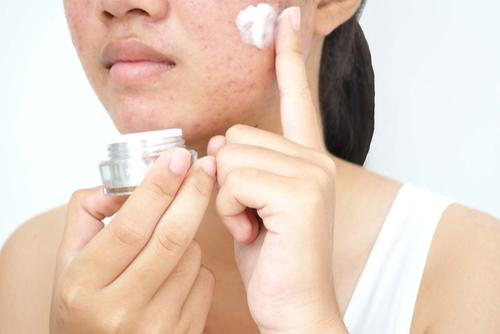Treating Your Acne
posted: Oct. 31, 2023.

Acne refers to a common skin condition when oil/dead skin cells clog hair follicles, which can cause pimples, blackheads, and sometimes deeper nodules. Dr. David Kessler of Massapequa Dermatology can help treat your acne. The most common place acne appears is on the face. Still, acne can also affect the neck, back, and other body parts.
Treating Your Acne
Treating acne typically includes a multifaceted approach that covers various skincare options, lifestyle modifications, and, in certain instances, medical treatment. The specific treatment plan for acne depends on its severity, type, and individual-specific factors.
Maintain Good Skincare Habits
In addition to using a mild cleanser twice daily (to remove dirt, makeup, and oil) that will not clog your pores, consider these skincare recommendations to treat ongoing or persistent acne –
- Avoid scrubbing your skin aggressively, as this can irritate existing acne. Instead, use a non-abrasive cloth to your hands to clean your face.
- Your skin should remain hydrated, so even if you are prone to oily skin, it is essential to use a light, oil-free moisturizer.
Over-the-counter (OTC) Products
Many topical OTC products contain salicylic acid, benzoyl peroxide, or alpha hydroxy acid, the active ingredients that can help reduce acne by unclogging pores. Follow the product directions cautiously. In addition, spot treatment options can be applied to individual pimples that help reduce inflammation.
Prescription Medications
If OTC products do not bring about the desired results, a dermatologist may prescribe stronger topical treatments that may include –
- Retinoids
- Topical Antibiotics
In more serious cases, oral antibiotics may be suggested.
Lifestyle Changes
Certain studies suggest that high-sugar foods and excessive dairy may aggravate acne in certain instances, so it may pay to avoid these food groups. Other lifestyle adjustments that may help reduce current and future outbreaks include -
- Practice stress-reduction techniques like mindfulness, meditation, or yoga.
- Try not to touch your face and only let clean things touch your skin.
- Use makeup designed to reduce the risk of clogged pores.
- Always take makeup before you retire for the night.
- Picking at acne can lead to scarring/inflammation.
Professional Treatments
Our Massapequa, NY dermatologists can offer various in-office treatments like chemical peels, micro dermabrasion, or laser therapy for severe or persistent acne. Remember that acne treatments can take several weeks (sometimes months) for a significant improvement to become evident, and individual responses to treatment vary.
Contact a Leading Massapequa, NY Dermatologist Today
For more information on how the dermatologists at Massapequa Dermatology can help, contact Dr. Kessler, or staff member at (516) 799-1600 or online.